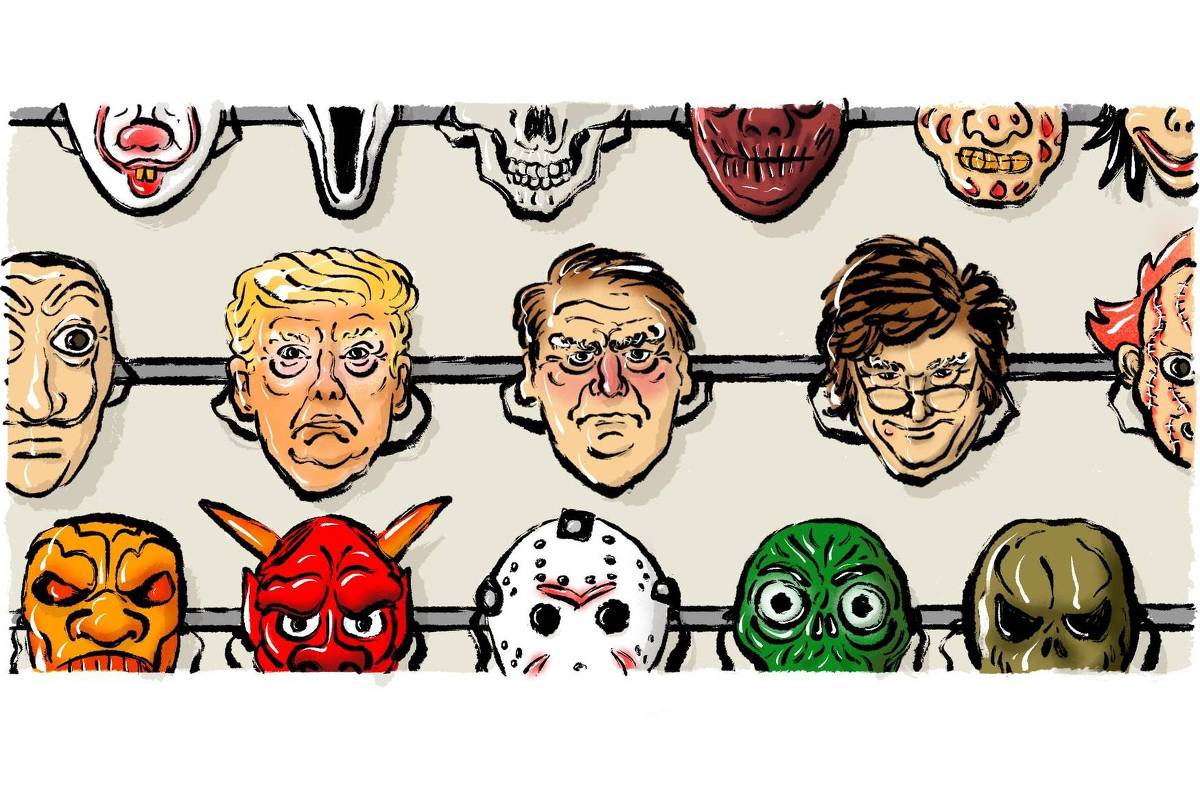
Published 16/12/2023 11:16 | Edited 12/16/2023 14:29
40 years after the end of its military regime, Argentina once again has a leader with authoritarian features at the head of the Casa Rosada. But, unlike Jorge Rafael Videla (1976-1981), Roberto Eduardo Viola (1981-1981), Leopoldo Galtieri (1981-1982) and Reynaldo Bignone (1982-1983), Javier Milei is a civilian and came to power by popular vote.
The inauguration of the new Argentine president, last Sunday (10), opened one of those periods in which, as chess grandmaster Aaron Nimzowitsch would say, “the threat is stronger than its execution”. Donald Trump and Jair Bolsonaro (in Brazil) tried to follow this guideline – until the invasion of the Capitol, in the United States, in 2021, and the acts of January 8, in Brazil, in 2023. The coup temptation became louder when the re-election of these extremists was not consumed.
The Milei government – which promised an economic “shock” upon inauguration – announced its “chainsaw package” two days later, with nine measures celebrated by the rentier sector. Workers and the productive sector will pay the bill, but the IMF (International Monetary Fund) praised the “audacity” of the new management. The banks, the brains of the mainstream media, know how to worship and shield any pro-austerity ruler.
But Milei is not just another neoliberal ready to wear, an Argentine fruit of the time, as were former presidents Carlos Menem (1988-1999) and Mauricio Macri (2015-2019). Much more to the right than his predecessors, the current president is beginning to test the limits of democracy in Argentina.
The first target is the trade union movement, which “mileism” intends to muzzle and protect. In his inauguration speech, the president himself preached a “new social contract” for “a distinct country”, where “he who does it pays for it”. Now, according to Milei, “whoever blocks the street, violating the rights of their fellow citizens, does not receive assistance from society”.
The generic threat gained more concreteness on Thursday (14), with Security Minister Patricia Bullrich as its spokesperson. Third place in the presidential election and one of Milei’s main supporters in the second round, Bullrich took on the boss’s role and announced a “protocol for maintaining order”. Supposedly in the name of “freedom of movement”, strikes and demonstrations can no longer block public roads, under the risk of being repressed even by the Armed Forces, depending on the will of those in power.
“We will use the minimum necessary and sufficient force, which will be graduated proportionally to the resistance. The four federal bodies – in addition to the federal penitentiary service – will intervene against road interruptions, pickets or blockades, whether partial or total”, warned the minister.
For Bullrich, “the law is not fulfilled halfway – it is fulfilled or it is not fulfilled”. Where will this lead? “Know that when you take to the streets, there are consequences. Let’s put order in the country, so that the people can live in peace”, emphasized the minister. The organizers must pay all costs related to security. The climate of terror is such that children and teenagers are prohibited from participating in any protests.
The initial test is scheduled for Wednesday (20), the date on which the first major demonstration will take place, in Buenos Aires, against the austericidal and authoritarian measures of the Milei administration. More than 50 thousand people are expected. “’Freedom of movement’, for them, is pure fallacy,” former left-wing presidential candidate Myriam Bregman told Clarín. “All the measures taken by the government are a profound attack on the living conditions of millions of people. Hence the urgency and gravity of Bullrich’s announcements.”
Em Rotten Powers, Caetano Veloso denounced the “incompetence” of our continent, “which will always need ridiculous tyrants”. The song is from 1984 and refers to the dictators who infested the Southern Cone. At least in Argentina, the escalation of the criminalization of the social movement and democracy itself is no different from the principles of former tyrants – some duly prosecuted, convicted and punished.
Even without a sufficiently organized support base in the country’s Congress, Milei pays to see, as if aiming for an autocratic administration, in the style of the Hungarian Viktor Orban. Since the attacks are only directed at trade unionism, there is a certain silence from the right, the market and the media. Nothing indicates, however, that the offensive will only affect the workers’ struggle. How long will there be silence?
Source: vermelho.org.br

